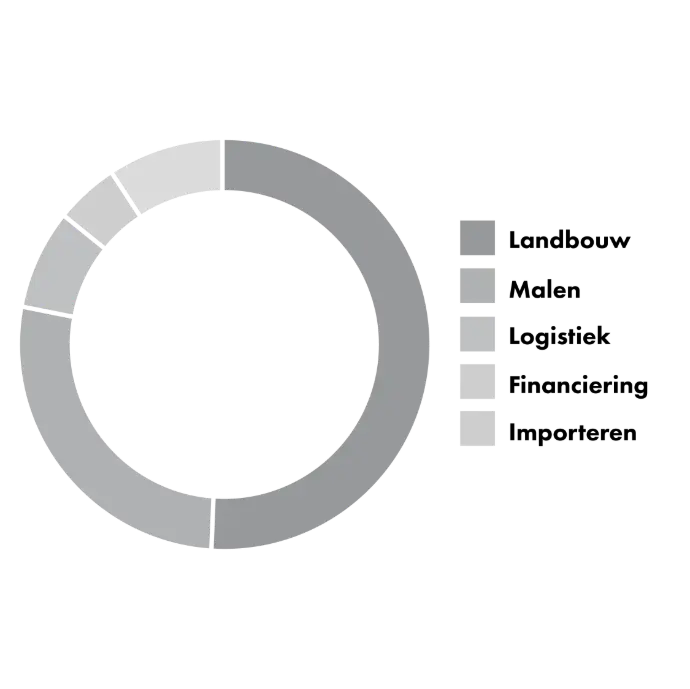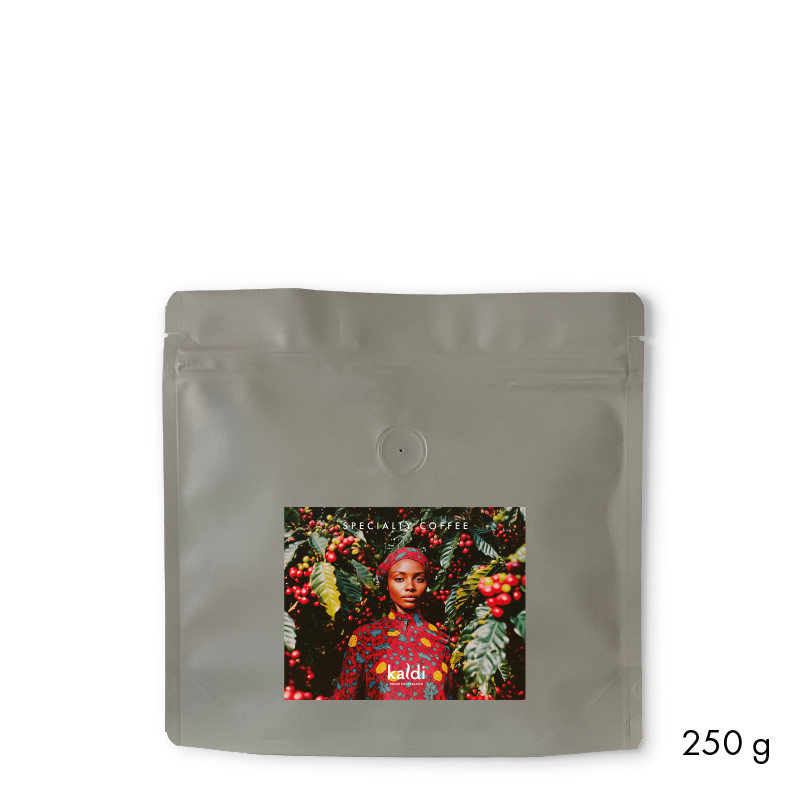
Aroma
Almond, red fruit, chocolate

Body
Round and smooth

Acidity
Light to medium (due to the fruity character of red fruit)

Aftertaste
Red fruit, soft chocolate, almond
About the Ehtiopia Galey Limmu Kossa
Plantations: Limmu Kossa Family Estate
Location: Jimma, Ethiopië
Cultivars: Local varieties selected for productivity, resistance and microclimate
Exporter: Own export license of Limmu Kossa
Importer: This Side Up Coffees
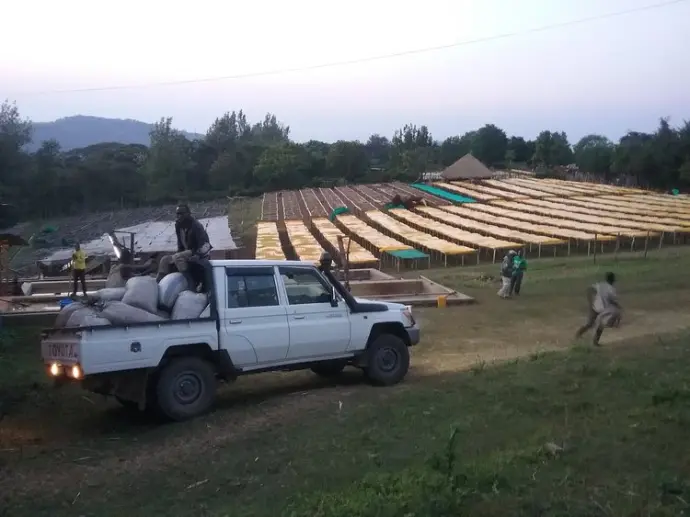
About the plantations
Limmu Kossa is a high-altitude plantation in the Jimma region, where coffea arabica occurs naturally. Founded by Giday Berhe, this private estate combines the structure of a corporation with the community orientation of a cooperative. The plantation not only focuses on high-quality production, but also actively invests in health care, education and training of local farmers.
About the farmers
Limu Kossa was founded by Giday Berhe, who began his career in 1993 as a trader in Jimma. In the 2000s, he founded his own farm in the village of Galeh and built strong ties with local small-scale farmers from the beginning. He invests his profits in community health and education, and teaches farmers how to improve their techniques and sell their coffee at a premium. His efforts earned him the honorary title “Abba Ollie” - “the one who uplifts.”
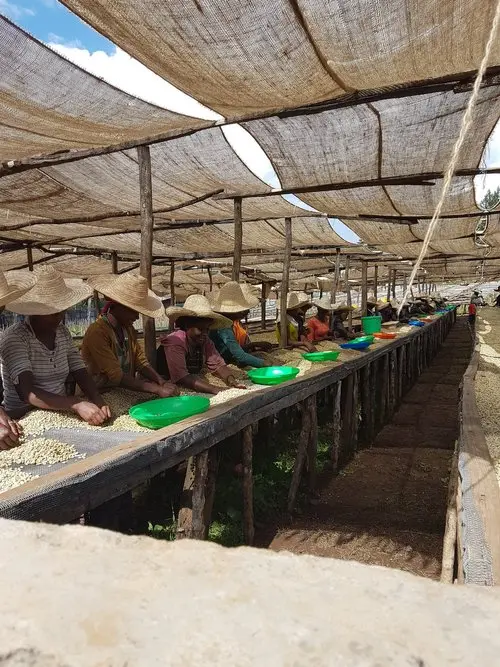
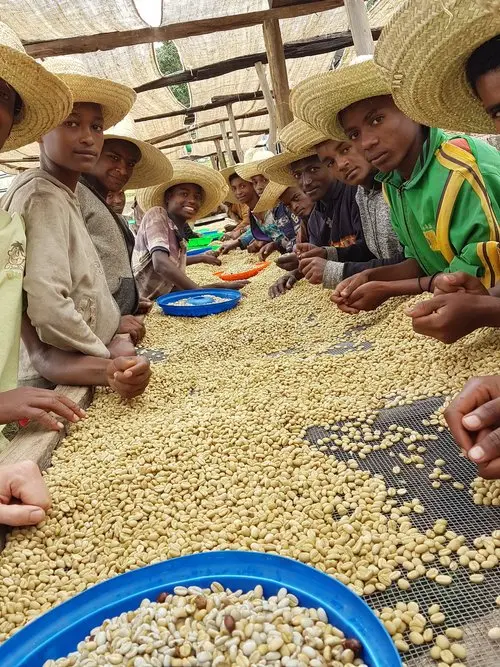
Processing the coffee
The coffee berries are picked by hand by seasonal workers. A rigorous selection is then made, after which the batches are separated according to harvest period. This particular coffee is a natural processing: fully ripe berries are spread evenly on raised drying beds and turned every hour for the first few days to prevent mold. The drying time is at least 12 days.
Roasting the coffee
Roasted with a 22kg Probat UG22 from 1965. The roast takes 10 minutes, with the coffee continuing to roast for 25% of the total time after the first 'crack'. This makes for a balanced medium roast in which fruitiness and chocolate come into their own.
Pricing
51% to farmers and agriculture
27% for processing and grinding
8% for logistics
5% for funding
9% fee for the importer
